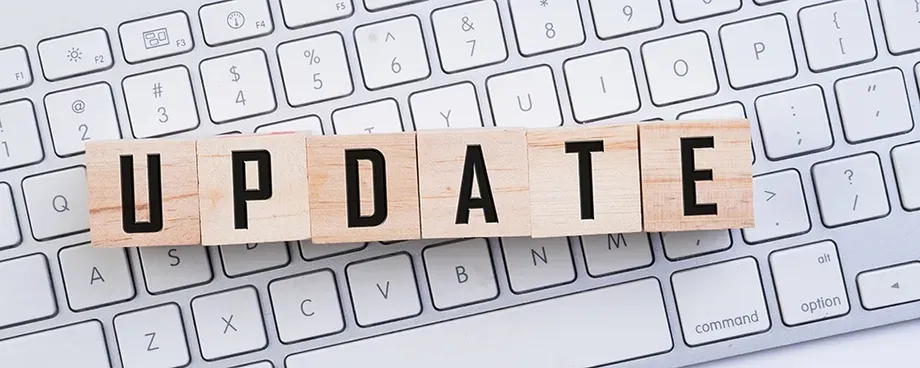How COVID-19 affects you, your family, and your taxes.
April 26, 2021|Updated: March 20, 2025

Since the onset of COVID-19, both federal and provincial governments have introduced many measures to support Canadians. It’s a lot to take in, and as the crisis continues to evolve, H&R Block is committed to provide you with regular updates to help you navigate everything that’s going on.
Here’s what you can find in this article:
- Tax filing deadlines
- Tax interest relief
- Top-ups for the Canada Child Benefit (CCB) and GST/HST Credit
- Changes to the Employment Insurance (EI) Program
- Additional provincial measures
- How H&R Block can help
- Other available resources
Tax filing deadlines.
Revenu Québec will allow 2020 returns to be filed up until May 31, 2021 without late-filing penalties or interest added to unpaid taxes owing. If you’re self-employed, your deadline to file is still June 15, 2021.
There are currently no plans for the Canada Revenue Agency (CRA) to extend the federal filing deadline again. However, if this changes, you’ll find out here! Sign up for our newsletter to get reminders about key tax dates delivered straight to your inbox or keep checking the H&R Block Tax Tips Blog for the latest news from the CRA and Revenue Québec.
Check out this blog to find out what your filing deadline is.
Tax interest relief.
The CRA and Revenu Québec won’t charge interest on the taxes you owe from your 2020 return until April 30, 2022.
You’re eligible for this interest relief if your taxable income is less than $75,000 and you received any of the following emergency benefits in 2020:
- Canada Emergency Response Benefit (CERB)
- Canada Emergency Student Benefit (CESB)
- Canada Recovery Benefit (CRB)
- Canada Recovery Caregiving Benefit (CRCB)
- Canada Recovery Sickness Benefit (CRSB)
- Employment Insurance (EI) benefits
- Incentive Program to Retain Essential Workers (IPREW)
- Similar provincial emergency benefits
Top-ups for the Canada Child Benefit (CCB) and GST/HST Credit.
The CRA increased the maximum annual Canada Child Benefit (CCB) payment amounts for 2019 to 2020 by $300 per child. This top-up amount was included with the May payment. In 2021, four additional payments will also be made to families with children under the age of 6. This includes:
- $300 per child for families with a net income of $120,000 or less, and
- $150 per child for families with a net income of more than $120,000
The government also added a GST/HST credit payment to those who usually receive them, in April, averaging $400 for individuals or $600 for couples.
Changes to the Employment Insurance (EI) program.
Many Canadians received EI benefits once their CERB payments ended. To make it easier for more Canadians to access their benefits, the federal government made temporary changes to the EI program.
If you apply for EI regular benefits between September 27, 2020 and September 25, 2021, you can now receive these benefits for up to 50 weeks (the previous limit is 26 weeks).
Taxable COVID-19 benefits.
The government has introduced federal and provincial COVID-19 relief measures for individuals and families which might impact your 2020 return. To learn more about the tax impact of these changes, visit this blog.
Additional provincial measures.
We recommend you review your provincial government’s website to find out additional details that are relevant to you:
- British Columbia
- Alberta
- Saskatchewan
- Manitoba
- Ontario
- Québec
- New Brunswick
- Nova Scotia
- Prince Edward Island
- Newfoundland and Labrador
- Northwest Territories
- Nunavut
- Yukon
How H&R Block can help.
If you have any questions about the impact of these changes, or if you wan to prepare and file your taxes for any tax year but aren’t sure where to start, H&R Block is here to help. Get help from the largest network of reliable Tax Experts by choosing one of four convenient ways to file: File in an Office, Drop-off at an Office, Remote Tax Expert, or Do It Yourself Tax Software.
Other available resources.
If you’re looking for specific changes related to business, students, or seniors, you can also check out these helpful articles:
- How COVID-19 benefits (like CERB) might affect your taxes this year
- What you need to know about repaying COVID-19 benefits (including CERB)
- Tax relief if you worked from home due to COVID-19
- COVID-19 financial support measures for seniors
- COVID-19 financial support measures for students
- COVID-19 financial support measures for businesses and small-business owners
- COVID-19 financial impacts to personal taxes
- COVID-19 impacts to Expats and Canadians abroad